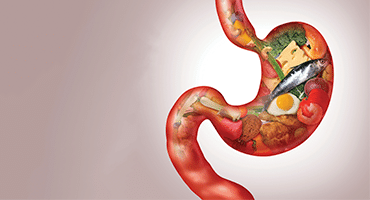
Shielding Your Gut: Nutritional Interventions for the Prevention of Gastrointestinal Cancers
Gastrointestinal cancers, which include cancers of the esophagus, stomach, liver, pancreas, colon, and rectum, are among the most common and deadly forms of cancer worldwide. While genetics and environmental factors can influence the risk of these cancers, emerging research highlights the profound impact of nutrition on prevention. In this article, we will explore the pivotal role of dietary choices in reducing the risk of gastrointestinal cancers and delve into specific nutritional interventions that can help protect your gut.
The Link Between Nutrition and Gastrointestinal Cancers
Before we delve into specific dietary interventions, it’s essential to understand the connection between nutrition and gastrointestinal cancers. Our diet significantly influences the health of our digestive system, making it a powerful tool for cancer prevention. Here are key ways in which nutrition can impact gastrointestinal cancer risk:
- Inflammation: Chronic inflammation is a known risk factor for many gastrointestinal cancers. A diet rich in processed foods, sugary drinks, and trans fats can promote inflammation, while a diet abundant in fruits, vegetables, and whole grains has anti-inflammatory properties.
- Fiber: High-fiber foods, such as whole grains, legumes, and vegetables, support digestive health and help prevent colorectal cancer by promoting regular bowel movements and reducing the risk of polyp formation.
- Antioxidants: Fruits and vegetables are rich in antioxidants, which can neutralize harmful free radicals that may damage DNA and increase the risk of cancer.
- Carotenoids: Foods like carrots, sweet potatoes, and spinach are high in carotenoids, which have been associated with a reduced risk of stomach and colorectal cancers.
- Phytochemicals: These natural compounds found in plant-based foods have shown promise in preventing gastrointestinal cancers. Examples include resveratrol in red grapes and sulforaphane in broccoli.
- Probiotics: Maintaining a healthy gut microbiome through foods like yogurt, kefir, and fermented vegetables may help protect against gastrointestinal cancers.
- Alcohol and Red Meat:Excessive alcohol consumption and a diet high in red and processed meats have been linked to an increased risk of gastrointestinal cancers, particularly colorectal cancer.
Specific Nutritional Interventions
Now, let’s explore specific dietary interventions that have demonstrated potential in preventing gastrointestinal cancers:
- Fruits and Vegetables: Aim to fill half your plate with a variety of colorful fruits and vegetables. These foods are rich in vitamins, minerals, fiber, and antioxidants that can reduce the risk of esophageal, stomach, and colorectal cancers.
- Whole Grains: Choose whole grains such as brown rice, quinoa, and whole wheat bread over refined grains. The fiber in whole grains supports digestive health and reduces the risk of colorectal cancer.
- Cruciferous Vegetables: Foods like broccoli, cauliflower, and Brussels sprouts contain sulforaphane, a compound with potential anti-cancer properties. Include these vegetables regularly in your meals.
- Fatty Fish: Omega-3 fatty acids found in fatty fish like salmon and mackerel have anti-inflammatory properties and may help reduce the risk of colorectal and pancreatic cancers.
- Green Tea: Rich in antioxidants, green tea consumption has been associated with a lower risk of stomach and liver cancers. Aim for a few cups of green tea per day.
- Berries: Blueberries, strawberries, and raspberries are packed with antioxidants and phytochemicals that may protect against esophageal and colorectal cancers.
- Probiotic Foods: Incorporate probiotic-rich foods like yogurt and kefir into your diet to support a healthy gut microbiome.
- Turmeric: Curcumin, the active compound in turmeric, has potent anti-inflammatory and antioxidant properties. Consider adding turmeric to your cooking or taking curcumin supplements.
- Limit Alcohol: If you choose to consume alcohol, do so in moderation. Excessive alcohol intake is a known risk factor for esophageal, liver, and colorectal cancers.
- Red and Processed Meats: Reduce your consumption of red and processed meats like beef, pork, and bacon. Opt for lean proteins like poultry and fish instead.
Tips for Increasing Protein Intake in Your Diet
Adding more protein to your diet during colon cancer treatment can be important for your overall health and recovery. Here are some tips:
- Lean Protein Sources: Include lean protein sources such as poultry, fish, lean cuts of beef, and plant-based proteins like beans, lentils, and tofu.
- Dairy Products: Incorporate dairy products like low-fat yogurt, milk, and cheese into your meals for additional protein.
- Eggs: Eggs are a versatile source of protein. You can prepare them in various ways to suit your taste.
- Protein-Rich Snacks: Keep protein-rich snacks like nuts, seeds, and yogurt handy for in-between meal boosts.
- Protein Shakes: Consider protein shakes or smoothies made with protein powder, fruits, and vegetables. They can be an easy way to increase your protein intake.
- Nutrient-Dense Meals: Opt for nutrient-dense meals that combine protein with a variety of vegetables and whole grains.
- Small, Frequent Meals: Eating smaller, more frequent meals throughout the day may make it easier to consume enough protein.
- Nutritional Supplements: If it’s challenging to get enough protein from food alone, talk to your healthcare team about nutritional supplements or shakes designed for cancer patients.
- Stay Hydrated: Don’t forget to drink plenty of fluids to stay hydrated, as this is essential for your overall health during treatment.
- Consult a Dietitian: Consider consulting a registered dietitian who specializes in oncology nutrition. They can create a personalized nutrition plan tailored to your needs and preferences.
Essential to work closely
Remember that everyone’s nutritional needs can vary, so it’s essential to work closely with your healthcare team to ensure you’re getting the right amount of protein and other nutrients to support your colon cancer treatment and recovery.
Your dietary choices can have a profound impact on your risk of developing gastrointestinal cancers. By embracing a diet rich in fruits, vegetables, whole grains, and anti-inflammatory foods, you can create a gut-friendly environment that discourages cancer development.
Remember that prevention is key. Incorporating these nutritional interventions into your daily life, combined with other healthy lifestyle choices like regular exercise and avoiding tobacco, can significantly reduce your risk of gastrointestinal cancers. Prioritizing your digestive health today can lead to a longer, healthier, and cancer-free future.






